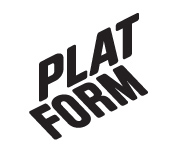Carla Cruz lives and works in Porto (Portugal). She is the guest-artist during October – December at KulturÖsterbotten’s Artist in Residence -programme at Ateljé Stundars.
Every year thousands of people leave their home towns and countries in search of a better life, a bearable life. These people normally travel from the countryside to bigger towns, from poorer countries to richer countries, from countries at war or with totalitarian regimes to democratic and peaceful countries. These people – emigrants – are the motor of several high income developed countries that wouldn’t be able to maintain the level of production and quality of life without them.
After having been primarily countries of emigration for more than two centuries, many countries within the European Union gradually became destinations for international immigrants. One of the factors connected to migration is undoubtedly economical. Most of the first 15 members of the European Union have already faced the displacement of their major industries to countries with a cheaper labour force. The same will happen, sooner or later, to all the new members. As the quality of life rises and salaries become higher, international or even national companies move to wherever they can produce the same thing for less money.
Finally, in this millennium Europe is a continent at peace, at least within its boarders. But that hasn’t been so for the last centuries. European history is also a narrative about self-determination.
This apparent peace is kept together with a constant state of fear und urgency. But what are we most afraid of? Loosing someone dear to us or one’s life, for sure, comes first but apart from that, what are Europeans afraid of?
We are afraid of the unknown, uncertainty and insecurity. We are afraid of those who frighten us. Those who want the same as we do. Those who desire security and peace. We are afraid of those who invade our boarders to live our way, but not quite the same way, afraid of those who in their own boarders want to live in their way, not our way, but being subjected to our ways anyway.
Still, what we acknowledge as being frightening are the big cataclysms: Third World War; environmental collapse; pandemic diseases and extra-terrestrial apocalypse in the shape of a meteorite collision.
Thus we come to Wormwood – as on the one hand is the silhouette of our fears and on the other the veil that covers our real anxieties. (For if we are not political anymore we are truly politically correct. Therefore, we would never openly mention that our biggest fear is actually our non-EU neighbours.)
500 million years ago a meteorite crashed into the earth not far from where we stand, being immediately galvanized by the explosion and leaving a scar 6 km of diameter. This could had been the description of the impact: I saw a star from heaven fallen unto the earth as it were a great mountain burning with fire as a torch – it was cast into sea: and the third part of the sea became blood; and there died the third part of the creatures which were in the sea; and the third part of the ships was destroyed. as well as a third part of the rivers, and the third part of the sun was smitten, and the third part of the moon, and the third part of the stars; that the third part of them should be darkened, and the day should not shine for the third part of it, and the night in like manner and the name of the star is called Wormwood: and the third part of the waters became wormwood; and many men died of the waters, because they were made bitter. But in those times life wasn’t yet been blown on earth. Plus the apocalypse is still to come.
So let us sing: Ja, må du leva, Ja, må du leva, Ja, må du leva uti hundrade år.
Sponsors:
![]()
![]()
Comments closed

